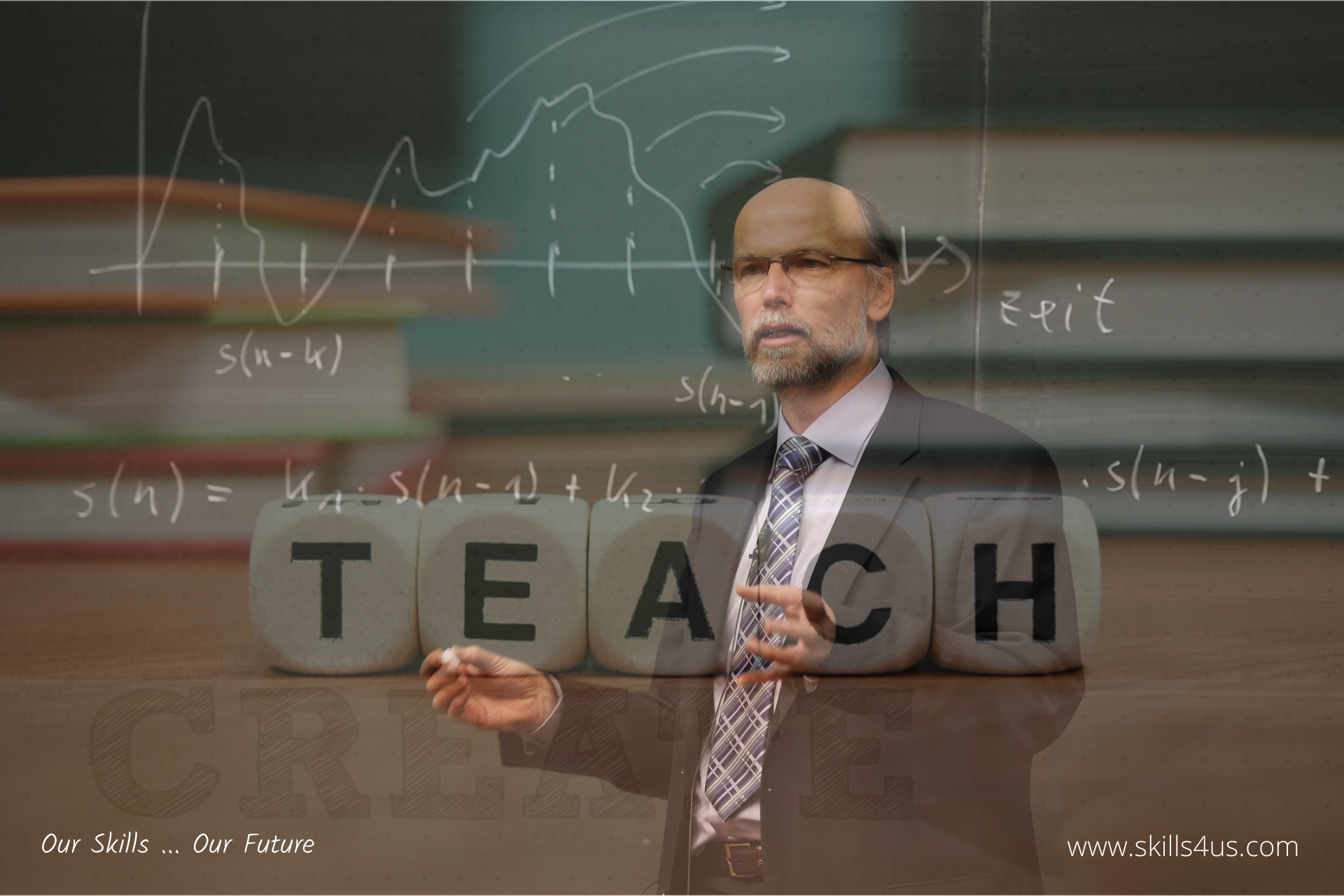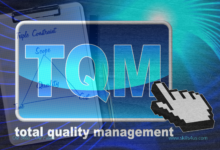
The Teaching Profession Charts The Path Of Creativity And Excellence For The Future Generation
I didn’t want World Teachers’ Day to go by without writing something. Through my experience in education and teaching, I will highlight some of the skills that a teacher needs to master the teaching profession and creativity in its implementation to achieve its future goals and objectives.
Science is the food of the mind. It is the basis for the progress of societies and the key to development in all areas of life. It is also the light that illuminates humanity’s path to bring it out of the darkness of ignorance into the light of knowledge. Thanks to science, the sprawling world has become a small village, and we can reach its borders in moments. Indeed, man went into space and landed on the surface of the moon, and research and studies may take us to horizons beyond imagination. Science is the means of revealing facts, discovering everything mysterious, and keeping abreast of all new in this world. Likewise, the pursuit of knowledge requires much effort, and to spread it among humans, there must be teachers who bear this great responsibility.
The teaching profession and its importance
The teacher is the person who brings up promising, educated, and educated generations. When the teacher stands in the classroom, he gives his knowledge to dozens of students and not a single student. So his impact on society will be significant by influencing the minds of that large number of students. The teacher makes his students people with a purpose in this life. And enlightens their minds to think correctly and positively, reveal the facts in front of them, generate hope in them. And make them more confident that they are the builders and leaders of the future. Likewise, the teacher is the one who produces more creative generations in different areas of life through his renewal and innovation in the performance of his profession. It is he who encourages them to move forward towards more creativity.
Therefore, the teaching profession is the only profession capable of building successful societies. That understand this life and its requirements and keep pace with everything new in this world. It is a profession that creates scholars, thinkers, and creators in different societies.
The importance of the teaching profession stems from the following:
1) Discovering and motivating abilities
The teacher acts as a support system that does not exist elsewhere in the students’ lives. Students learn the meaning of responsibility in success or failure, as most people remember their favorite teacher, especially the one who made an impression on them. In most cases, the teacher is the first to discover students’ talents and abilities. He contributes to developing these talents by training students to highlight and refine them and their role in developing students’ self-confidence and motivating them permanently to achieve their goals. The teacher can also form opinions and ideas about society and life. Which contributes to broadening students’ horizons and pushing them to be creative.
2) Increase knowledge and skills
The teacher affects his students’ academic performance at a rate of two to three times compared to the effect of other variables related to the educational organization (school – institute – university). The distinguished teacher has excellent skills that develop and improve teaching outcomes by imposing challenges on students to stimulate their thinking ability. And immunizing them with the knowledge and skills needed to face future challenges and changes. One of the greatest gifts of one person to another is presenting information so that students can remember and use it. Note that this information gives the individual the ability to look at life from different angles and contributes to acquiring knowledge and experience that affects later life.
3) Continuous creativity and continuous improvement
The teaching process is subject to specific standards related to teaching methodology and methods. But this does not prevent the teacher from being creative in his work. And making the lessons innovative and exciting to encourage students to interact with them. To be creative in his career, he must constantly develop by requesting guidance and supervision from experienced and qualified people.
Teaching is a continuous learning cycle, where the learning process does not end after graduation and getting a job, but rather it continues for life. Continuing to learn helps people permanently develop their abilities and master their work with high professionalism. Therefore, the leaders of educational organizations must enable teachers to develop themselves professionally, to be more effective and efficient in various aspects of their work and life.
4) Creating future generations
The teacher is considered the future leader to create successful future generations and thus participates in making societies at the local and global levels. He can do this by daily instructing students on the importance of sharing, respecting, accepting differences, and having good manners. Thus, students learn to model the behavior of leaders and are keen to emulate it.
5) keys to the future
Students need to develop multiple competencies and skills across the curriculum for long-term success. Today’s teacher’s job goes beyond providing content knowledge or training in basic skills to helping students develop critical thinking skills, master problem-solving, train them to collaborate effectively, and build healthy relationships. These skills are the keys to facing the challenges of future life. And it is also why the teaching profession is considered the most critical profession globally. The teacher gives the key to a better life for each student and builds the foundation for a strong community.
Essential skills needed in the teaching profession
Despite the practical grades that a teacher gets to enter the teaching profession, many teachers lack communication skills to students. They also increase the complexity of the material in a manner closer to stagnation in presenting topics in the classroom. In contrast, others fail in the process of explanation and understanding, which requires almost dramatic movements. The teacher can control the students’ minds and attract their attention to him to not feel bored, and their mind wanders outside the classroom.
There are many different roles in the teaching process, which require other skills. Here we take a look at why you should consider some of them (to name a few) you need to master the teaching profession:
1. Planning and organizing
Being a profession that requires many tasks, and the teacher deals with the students and follows up on his daily schedule. And his comments regarding the teaching content he provides, he must plan and organize. He shall have the ability to manage time, deal accurately with his multiple tasks, respect time. And use what helps him manage the performance of all required without disturbing the balance in achieving any of them.
This process is the first skill of a teacher who seeks excellence in the teaching process. Knowing that he does it alone, he thinks about things and topics and teaches them. The planning and organization process also requires the teacher to have a high ability to know the nature of the target group (the learners). And know their most essential needs to ensure their presence during teaching. It also determines the abilities and capabilities of these students to try to devote and benefit from them in the teaching process.
2. Communication
A large part of the teaching process is communicating information. Note that the most characteristic of a successful teacher is effective communication with his students. This communication may be oral, written, or via any other route, from practical demonstrations to technical interpretation, regardless of your point of view.
3. Patience and flexibility
People learn at different rates, and if you have to explain something seven times in seven different ways, that’s just part of the teaching profession. And when you encounter challenging behavior, you need to be calm, patient, flexible, persistent, and not lose your temper. Since patience and flexibility are inherent personality traits, they improve and develop. Think before you speak, and make patience and flexibility one of your daily goals.
4. Creativity
People learn best when they do something fun and exciting. It’s up to you to get creative with your style and find new and fun ways to teach your students. You can do this by getting in the habit of sharing ideas and brainstorming when you have a problem. Knowing that it is a skill that will help you communicate with everyone in the future and develop more creative solutions.
5. Enthusiasm
Your enthusiasm is contagious and influential, so if you love your work and your profession, you will be able to influence the people you teach. So make sure to introduce a subject you love. And if you have to offer something else, turn it into something that gets you excited. And look for ways you can overcome the state of boredom, if any.
6. Confidence
Confidence helps you when you stand and run a classroom, regardless of the level and age of your students. Many jobs in the education sector involve public speaking, so trust is a must. To develop your confidence, try new things and set yourself challenges. They know that confident people can be themselves without pleasing and getting along with others.
7. Dedication and emotional intelligence
There is no denying that teaching can be challenging at times. If you are committed to helping your students succeed, you will be able to maintain your energy levels and avoid frustration. You can develop this skill by developing your emotional intelligence in general and empathy in particular. When you put yourself in someone else’s shoes, you can better understand what they want and how to deal with it.
8. Technology skills
You may be a successful and distinguished teacher in the classroom, but nowadays, you need to acquire additional skills to succeed. The most important of these are the technical skills that enable you to use the right tools with students. The teacher should have a computer and chat software skills, upload files, update software, and familiarize themselves with social media platforms. Also, it should be able to discover and solve simple technical problems and conduct periodic evaluations of them and the curricula it offers. Listening to students’ wishes and observations can improve the study environment and interest in continuous training.
The teacher’s mastery of these skills as a minimum facilitates the achievement of the objectives of the teaching process. And facilitates the implementation of the work and tasks it requires. Mastering these skills also deepens the learning and teaching process, increasing the teacher’s awareness, knowledge, and essential theoretical experience. Thus, the teaching process is straightforward, and thus the teacher and student can achieve the most critical achievements.



